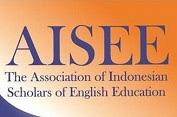EFL TEACHER’S REFLECTION ON USING BAAMBOOZLE: BENEFITS, CHALLENGES, AND FUTURE IMPLEMENTATION
DOI:
https://doi.org/10.36706/jele.v11i2.46Keywords:
technology integration, gamified English instructionAbstract
This study investigated an EFL teacher's reflection on benefits, challenges, and future implementation after integrating Baamboozle in the teaching of English to EFL students as reflected in the research questions: (1) what are the perceived benefits of using Baamboozle in teaching English to the sixth graders?; (2) What challenges does the teacher face when integrating Baamboozle into English lessons for the sixth graders?; and (3) How does the teacher plan to apply Baamboozle in future English language instruction?. A case study design was employed involving an EFL elementary school teacher in Malang, East Java, Indonesia. The data were collected through the teacher’s reflective journals which documented his daily experiences and observations related to using Baamboozle, and a semi structured interview designed to explore the teacher’s perspectives on its benefits, challenges, and future implementation. The findings show that Baamboozle boosted students’ engagement and motivation as the students became more active during the four lessons. However, challenges in relation to preparation time, giving instruction, managing effective grouping, ensuring students’ equal participation, and helping students regulate their emotions were encountered. Despite the challenges, Baamboozle was preferred to be used in the future as an engaging platform that can avoid students’ boredom.
References
Afrilyasanti, R., & Cahyono, B. Y. (2022). Gamification as a helping hand for students’ learning adaptation due to covid-19 pandemic. The Journal of AsiaTEFL, 19(4), 1301-1310.
Andriani, A., Dewi, N. S. N., & Wijayanti, A. (2024), Junior High School English teachers’ perception on games-based English vocabulary teaching. EDUTECH, 23(1), 46-67.
Alawadhi, A., & Abu-Ayyash, E. A. (2021). Students’ perceptions of Kahoot!: An exploratory mixed-method study in EFL undergraduate classrooms in the UAE. Education and Information Technologies, 26(4), 3629-3658.
Aldemir, T., Celik, B., & Kaplan, G. (2018). A qualitative investigation of student perceptions of game elements in a gamified course. Computers in human Behavior, 78, 235-254.
Almusharraf, N. (2023). Incorporation of a game-based approach into the EFL online classrooms: students' perceptions. Interactive Learning Environments, 31(7), 4440-4453.
Ardi, P., & Rianita, E. (2022). Leveraging gamification into EFL grammar class to boost student engagement. Teaching English with Technology, 22(2), 90-114.
Arini, A. R., & Suwarso, P. N. (2024). EFL students’ perception towards the use of Baamboozle for vocabulary learning. ELTIN Journal: Journal of English Language Teaching in Indonesia, 12(1), 97-110.
Aryansyah, A. D. (2024). The application of the Baamboozle game to improve students’ vocabulary mastery. Doctoral dissertation. Universitas Pendidikan Ganesha, Singaraja, Bali.
Clarke, V., & Braun, V. (2017). Thematic analysis. The journal of positive psychology, 12(3), 297-298.
Cabrera-Solano, P. (2022). Game-based learning in higher education: The pedagogical effect of genially games in english as a foreign language instruction. International Journal of Educational Methodology, 8(4), 719-729.
Fahada, N., & Asrul, N. (2024). Students Perception of Gamified Learning in EFL Class: Online Quizizz for Engagement and Motivation. Journal of Education and Teaching Learning (JETL), 6(2), 142-151.
Fernández-Batanero, J. M., Román-Graván, P., Reyes-Rebollo, M. M., & Montenegro-Rueda, M. (2021). Impact of educational technology on teacher stress and anxiety: A literature review. International Journal of Environmental Research and Public Health, 18(2), 548.
Hung, H. T., Yang, J. C., Hwang, G. J., Chu, H. C., & Wang, C. C. (2018). A scoping review of research on digital game-based language learning. Computers & Education, 126, 89-104.
Johnson, A. M., Jacovina, M. E., Russell, D. G., & Soto, C. M. (2016). Challenges and solutions when using technologies in the classroom. In S. A. Crossley & D. S. McNamara (Eds.), Adaptive educational technologies for literacy instruction (pp. 13-30). Routledge.
Konstantakis, M., Lykiardopoulou, A., Lykiardopoulou, E., Tasiouli, G., & Heliades, G. (2022). An exploratory study of mobile-based scenarios for foreign language teaching in early childhood. Education Sciences, 12(5), 306.
Le, L. A. T., Tran, Q. N. T., Nguyen, K. D. T., & Xuan, H. T. N. (2023). Using Learning Games for Fourth-grade Students to Teach Vietnamese Lessons and Teachers' Perspectives on Learning Games. Journal of Education and e-Learning Research, 10(3), 364-370.
Liu, I. F. (2024). Gamified mobile learning: effects on English learning in technical college students. Computer Assisted Language Learning, 37(5-6), 1397-1420.
Luthfiyyah, R., Hafifah, G. N., Ivone, F. M., & Tresnadewi, S. (2021). Technology use in secondary level of English language teaching: A Literature Review. JEES (Journal of English Educators Society), 6(1), 79-89.
Makukhina, S. (2024). The use of modern digital technologies in the process of foreign language learning. Humanities Science Current Issues, 1(74), 289-293.
Masitoh, F., Cahyono, B. Y., Suryati, N., & Suhartoyo, E. (2023). Pre-service EFL teachers' identity construction in relation to digital gamification: A social theory of learning perspective. Japan Association for Language Teaching Computer Assisted Language Learning Journal (JALT CALL Journal), 19(3), 369-393.
Mayasari, L. (2019). Teachers’ perceptions of using language games. Linguistics and English Language Teaching Journal, 7(1), 19-25.
Mrissa, B., & Anasse, K. (2023). Enhancing EFL learning through computer-based gamification: an investigation of impact. International Journal of Language and Literary Studies, 5(4), 308-325.
Muhajirin, M., Sulastri, S., & Sulaiman, R. (2022). The effectiveness of Baamboozle games in improving students’ engagement in learning English. Karya Ilmiah Mahasiswa (KIMA), 1(3), 342-347.
Nabangi, L. N. (2021). Exploring the use of gamification in the teaching and learning of English grammar in a private secondary school classroom in Mombasa County.
Nosirova, D. (2024). Learning English using computer technology. Modern Science and Research, 3(2), 694-699.
Pham, A. T. (2023). The impact of gamified learning using Quizizz on ESL learners' grammar achievement. Contemporary Educational Technology, 15(2), Ep10.
Permana, I. G. Y., Rismadewi, N. W. M., & Putra, N. C. A. (2024). Gamification in EFL classroom: Results of implementation and teachers’ point of view. Utamax: Journal of Ultimate Research and Trends in Education, 6(1), 1-11.
Pertiwi, C. A. A., Mustofa, M., Ubaidillah, M. F., & Hariyanto, S. (2022). The portrait of challenges in teaching English to young learners: A case study in an Indonesian Islamic school. Journal of English Language Teaching and Linguistics, 7(3), 467.
Putra, P. P., & Priyatmojo, A. S. (2021). Students' perception toward gamification applied in English language classroom. ELT Forum: Journal of English Language Teaching, 10(1), 21-29.
Qureshi, H., & Khatoon, S. (2023). The Impact of Gamification Tools on Reading Comprehension Skills: A Comparative Study of Kahoot! Quzizz and Baamboozle of English Language Learners. Pakistan Languages and Humanities Review, 7(4), 181-195.
Ridha, N., & Fithriani, R. (2023). EFL pre-service teachers’ perception of technology integration in English language instruction. Research and Development Journal of Education, 9(1), 431-441.
Rofiah, N. L., & Waluyo, B. (2024). Effects of gamified grammar and vocabulary learning in an English course on EFL students in Thailand. Teaching English with Technology, 24(2), 22-46.
Rosyidah, U. J., Laksmi, E. D., & Anugerahwati, M. (2023). Gamification in Duolingo App on improving English listening proficiency of Junior High School students. ENGLISH FRANCA: Academic Journal of English Language and Education, 7(1), 119-132.
Saleh, A. M., & Ahmed Althaqafi, A. S. (2022). The effect of using educational games as a tool in teaching English vocabulary to Arab young children: A quasi-experimental study in a kindergarten school in Saudi Arabia. SAGE Open, 12(1), 21582440221079806.
Sáez, A. R., & Espinoza, A. Q. (2023). Baamboozle’s influence on willingness to communicate in english in small group private lessons. Journal of Namibian Studies: History Politics Culture, 34, 6646-6661.
Saud, S., Aeni, N., & Azizah, L. (2022). Leveraging Bamboozles and Quizziz to engage EFL students in online classes. International Journal of Language Education, 6(2), 169-182.
Slamet, J., & Basthomi, Y. (2024). Assessing gamification-based LMS for EFL students: A self-directed learning framework. Studies in Linguistics, Culture & FLT, 12(2), 100-122.
Sukmawati, I. D., & Pujiani, T. (2023). Enhancing classroom engagement using online games. Jurnal LINGUA: Jurnal Pendidikan Bahasa, 19(1), 75-92.
Thuy, N. T. T., & Hung, L. N. Q. (2021). Teachers’ perceptions of using gamification apps in teaching speaking skill to EFL young learners. International Journal of Science and Management Studies, 4(5), 81-96.
Tran, V. K. (2023). University students' attitudes towards the use of a gamified platform in learning English as a foreign language. Doctoral dissertation. FPTU Cần Thơ.
Uti, H. Y., Munir, M., & Said, S. D. (2021). Pengaruh Penggunaan Media Game pada Pembelajaran Bahasa Inggris Secara Daring dan Luring di MTs N 1 Gorontalo [Effect of the use of game media on the online and offline learning of English in State Islamic Junior High School 1 Gorontalo]. Jurnal Pemikiran dan Pengembangan Pembelajaran, 3(3), 10-17.
Valizadeh, M. (2020). Integration of Technology in EFL Classrooms: Turkish Teachers’ Perceptions and Proficiency Levels.
Wulandari, W., Susanto, D. A., & Hawa, F. (2024). Using Bamboozle games to improve students’ vocabulary in understanding narrative text. Jurnal Ilmiah Multidisiplin, 2(3), 141-147.
Yin, R. K. (2003). Designing case studies. Qualitative research methods, 5(14), 359-386.
Zainuddin, Z., Shujahat, M., Haruna, H., & Chu, S. K. W. (2020). The role of gamified e-quizzes on student learning and engagement: An interactive gamification solution for a formative assessment system. Computers & Education, 145, 103729.
Zhang, S., & Hasim, Z. (2023). Gamification in EFL/ESL instruction: A systematic review of empirical research. Frontiers in Psychology, 13, 1030790.
Zou, D. (2020). Gamified flipped EFL classroom for primary education: Student and teacher perceptions. Journal of Computers in Education, 7(2), 213-228.
Downloads
Published
Issue
Section
License
Copyright (c) 2025 The Journal of English Literacy Education: The Teaching and Learning of English as A Foreign Language

This work is licensed under a Creative Commons Attribution-ShareAlike 4.0 International License.













